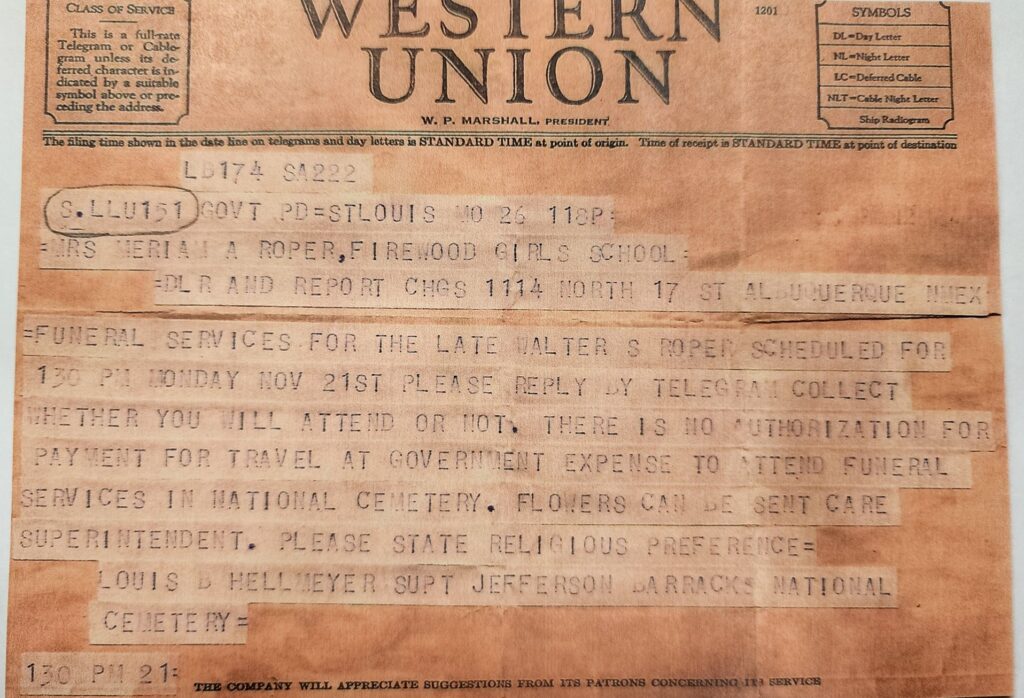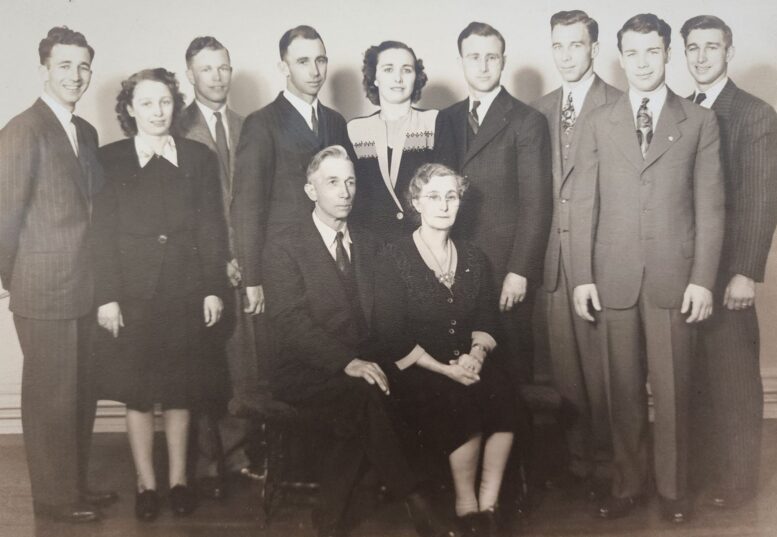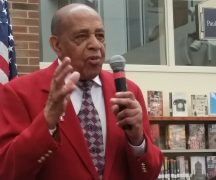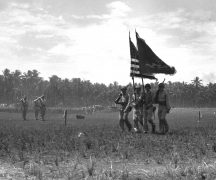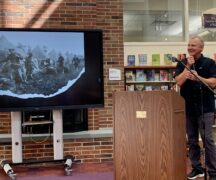By JAN McLAUGHLIN
BG Independent News
Wars always demand more sacrifices from some than others.
Two Bowling Green area families carried an unfathomable burden during World War II – one sending six sons to fight, and another sending five.
As the nation celebrates Memorial Day and the lives lost in military service, the Newlove and Roper families can reflect on the weight their families shouldered. It was a load borne by the boys in battle and on their families waiting back home.
(The 11 sons from two families are recognized on the new veteran banners posted on light poles around Bowling Green.)
In the war that claimed the lives of more than 400,000 American service members, the Newlove family saw all their sons come home – Al, Bob, Dick, John, and twins Claude and Clyde.
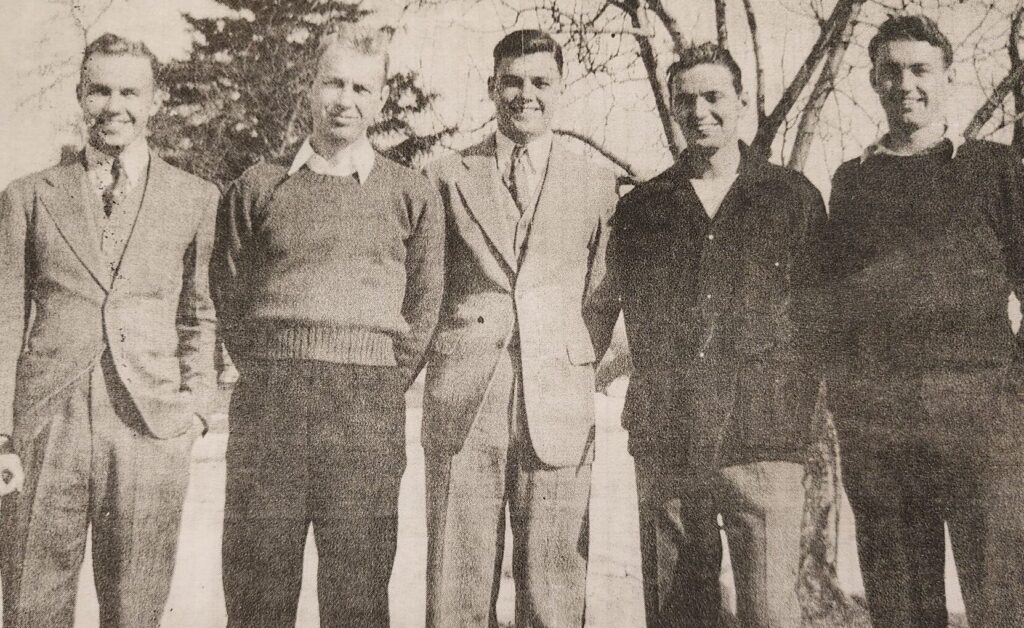
The Ropers had four sons return home – John, Richard, Robert and Thomas. But Walter, a radar man on a B-29, was killed when his aircraft was shot down over Japan.
A letter from Army Air Forces commanding general on July 9, 1946, confirmed that Second Lt. Walter Stewart Roper, who had been missing in action in the Pacific since June 22, had been determined to be dead.
The letter, written to his wife, stated the following: “It has been called to my notice that Lt. Roper established a fine military reputation in this organization. Resourceful and tenacious of purpose, he cheerfully accepted difficult assignments and completed them in the thorough, alert manner that was characteristic of him throughout his Army career. His resourcefulness and initiative will be remembered by associates who are saddened by their loss of a loyal airman.”
The Newlove family never received one of those heartwrenching letters. But they were forever changed by the war and the worry over their six boys.
A story passed down through generations told of the boys’ mother, Rosa Newlove, aging prematurely as she waited for her six sons to return. The children and grandchildren of the brothers remember well the story of Rosa’s hair being black before her boys left for war, but being white with worry by time they came home.
All the Roper and Newlove boys have since passed, but nearly three decades ago, the remaining Newlove boys shared some memories from the war.
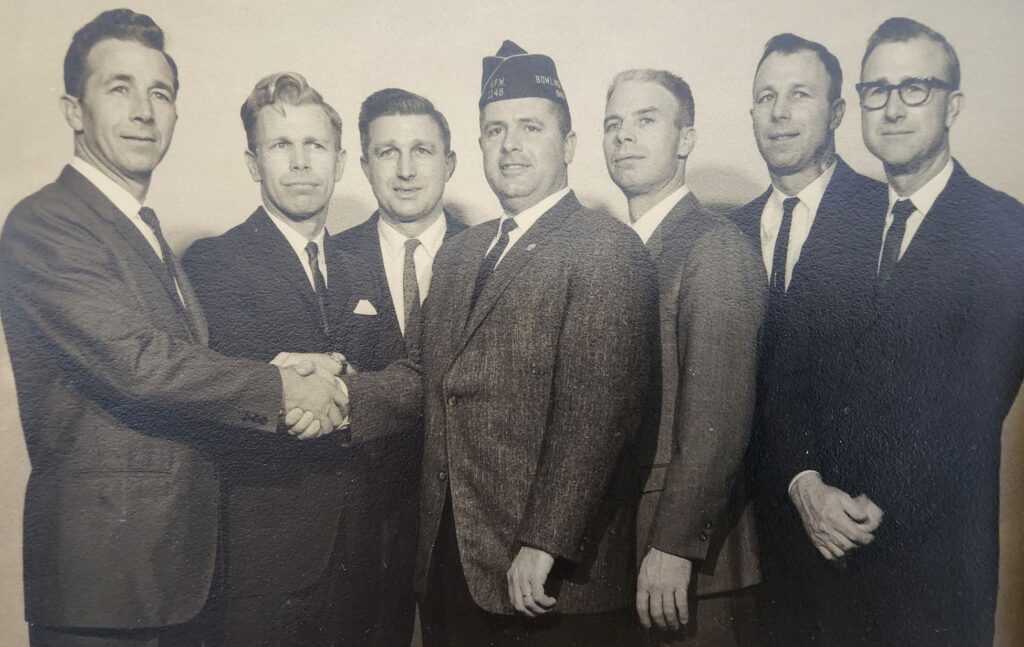
Newlove family
The six Newlove brothers, John, Al, Robert, Dick and twins Claude and Clyde, served a collective 16 years and six months in the armed forces. Their oldest brother, Joseph stayed home to keep the farm going. All together the six brothers received 15 medals, ribbons and badges, including four Good Conduct Medals, a Victory Medal, and a Presidential Citation. They also earned eight Bronze Stars, two Battle Stars, and a Purple Heart.
“It’s beyond a miracle that all six came home,” said Cathy Newlove Wenig, daughter of John Newlove.
John Newlove, who was the last to pass away at age 98 in 2014, was stationed all over Europe during the war, most notably at Normandy’s Omaha Beach for D-Day, the Rhineland and Ardennes offensives, and the Battle of the Bulge. In later years, he was quoted about the Battle of the Bulge, saying, “We lost 80,000 people, soldiers in that conflict, the bulge. It was chaos. That was a bad one.”
John felt he and his brothers did what was needed, without complaint and with a sense of honor. “We all fought for the same thing. We all thought it was our duty.”
“They were there for years,” John’s daughter, Joan Newlove, said. “They just knew they were supposed to do something. They had a sense of duty.”
As battles drew near, soldiers were prone to seek a little outside help. “Church was full everytime before they went into battle,” Cathy Newlove Wenig said.
Robert Newlove and his fellow soldiers used donkeys to get supplies up the steep Italian mountains. Even the American Jeeps couldn’t traverse the twisted narrow trails, and horses’ hooves couldn’t dig into the mountain to get traction.
Robert spent much of his time in Italy, in a 10-foot hole, big enough for two. He received a Purple Heart for wounds sustained in the Italian campaign.
Clyde Newlove recalled walking across Europe with a machine gun on his shoulder.
“You ever hear of the SS troops? Well, that was who I was against. I fought those son-of-a-guns the whole way.”
The boys’ mom kept the homefires burning and the letters coming to her sons around the world.
“My mother and sister (Marie) wrote a letter each day to each of us,” Al Newlove recalled years ago. “It made me feel great. Keep in mind, you’re 19 or 20 years old, you’re just a kid yet.”
The boys calculated that their mom and sister sent about 5,500 letters to them during the war, costing about $165 in postage.
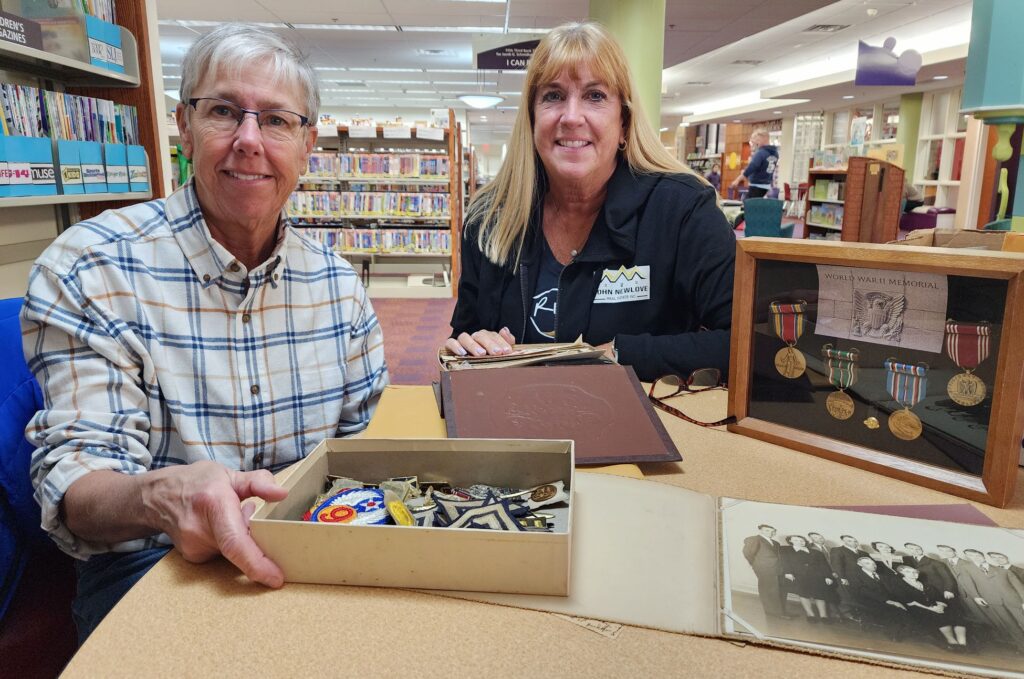
At their farm homestead at the corner of Ohio 281 and Rudolph Road, a few miles south of Bowling Green, the Newlove parents proudly posted a blue star banner with six stars for their sons serving. Even long after they were all back home, the banner remained, moved inside and hanging on the wall behind the living room davenport.
“She never took it down,” Cathy Newlove Wenig said.
Though John rarely talked about his service with his family, he left them with precious memorabilia from his experience – black and white photos, medals, postcards and money from Europe.
“The things he saw, he didn’t want to talk about it at home,” Cathy said.
“I don’t think any of us can truly imagine what any of these men and women went through and witnessed, let alone being from a small town, and being thousands of miles from home and away from loved ones,” Joan Newlove said.
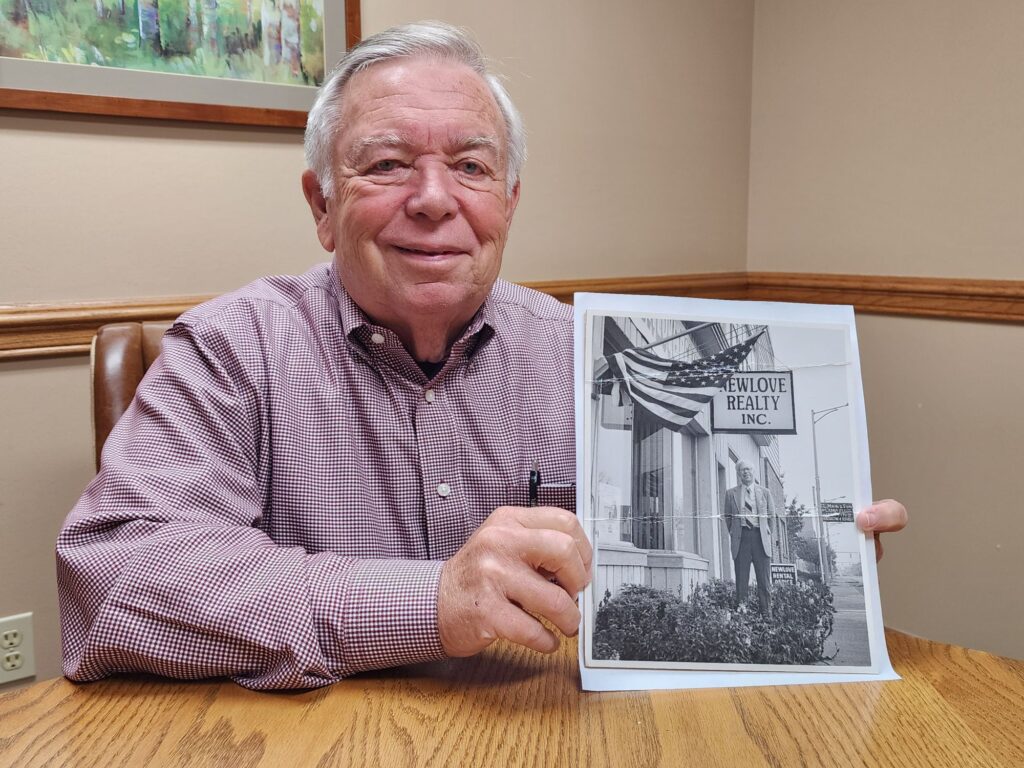
Al Newlove was also pretty tight lipped about his service, according to his son, Dick Newlove. Al was in the South Pacific, assigned to go onto islands – like Bougainville, Guadalcanal and the Philippines – after the first wave of U.S. troops.
“He didn’t talk about it a lot,” and when he did, he usually turned the conversation to funny events that happened with his fellow soldiers.
“He was there three years. He really didn’t think he would come home,” Dick said of his dad.
One of those funny stories told of the bizarre happenstance, when brothers Al and Dick met in the Pacific. Al was leaning against a tree napping, when someone came up and asked “Hey, how you doing?” With the sun in his eyes, it took Al a while to recognize it was his brother, Dick.
“It should never have happened,” Al’s son said, since the military tried to keep family members separated after the sinking of a U.S. ship in 1942, killing all five Sullivan brothers from Iowa.
However, Al and Dick were thrilled to spend time together, doing a lot of gambling in their down time. “They were good at it,” said Dick, who was named after his uncle.
After the war, the Newlove boys remained in the Bowling Green area, with four going into real estate – Al, Claude, Dick and John. Bob was a city firefighter, and Clyde worked in a factory. Al contracted tuberculosis while in the Philippines, causing him to lose part of a lung. “He was basically down for three years,” Dick said.
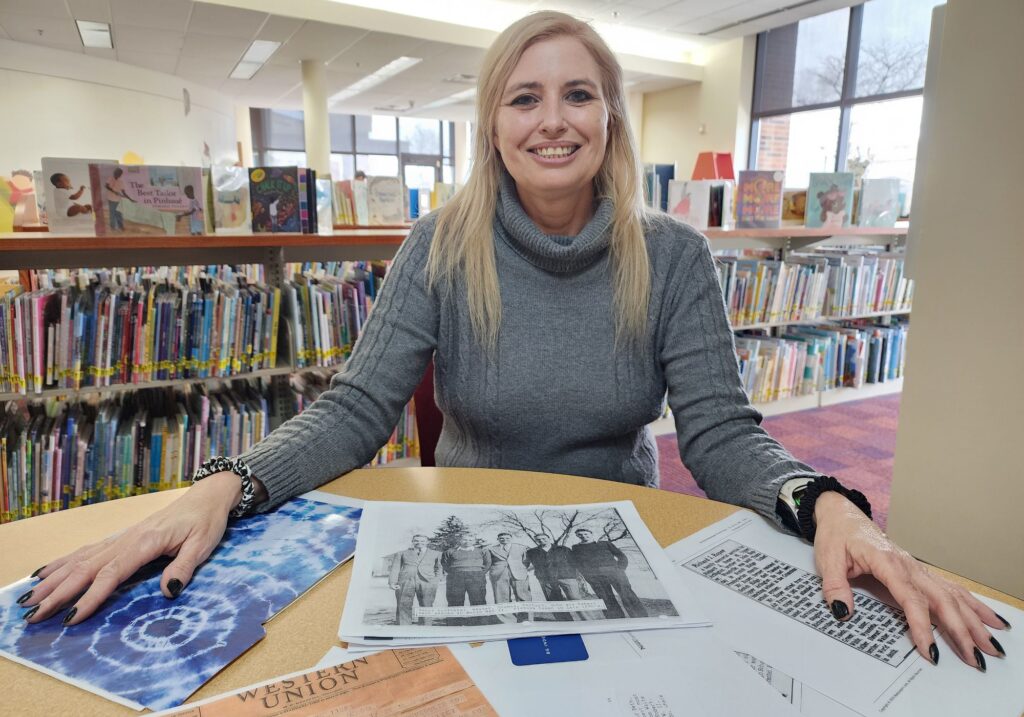
Roper family
Jessica Roper Pellar, a granddaughter of Robert, one of the five Roper boys who went off to battle in WWII, comes from a long line of those willing to fight for their country.
Soon after her ancestors got off the boat from Scotland and moved to Scotch Ridge, a few miles east of Bowling Green, the men of age signed up to fight with Union troops in the Civil War.
The tradition continued with the five Roper boys in World War II. After the war, her grandfather returned home, got an education at BGSU, and went on to serve as bursar at BGSU and a Bowling Green City Council member.
Robert had been shot in the leg, paralyzing it from the knee down. Like so many others, “He didn’t talk a lot about it,” his granddaughter said.
“This cycle of service is honorable, but it leaves a lot of scars,” Jessica Roper Pellar said.
Robert had five sons, with two being drafted to serve in Vietnam.
Jessica’s husband, Brian Koceja, joined the service after the 9/11 attacks. A son served in the 1st Gulf War, and another in Afghanistan.
“God, country and your mother. That’s how these boys were raised and that’s how my boys were raised,” Jessica said.
Annual observances of Memorial Day, Veterans Day, and 9/11 hold a special meaning for the Roper Pellar family, she said. And the new banners flying in Bowling Green recognizing the sacrifice of her family and others are meaningful.
“I’m very excited they are going to get the recognition they deserve,” Jessica said.
